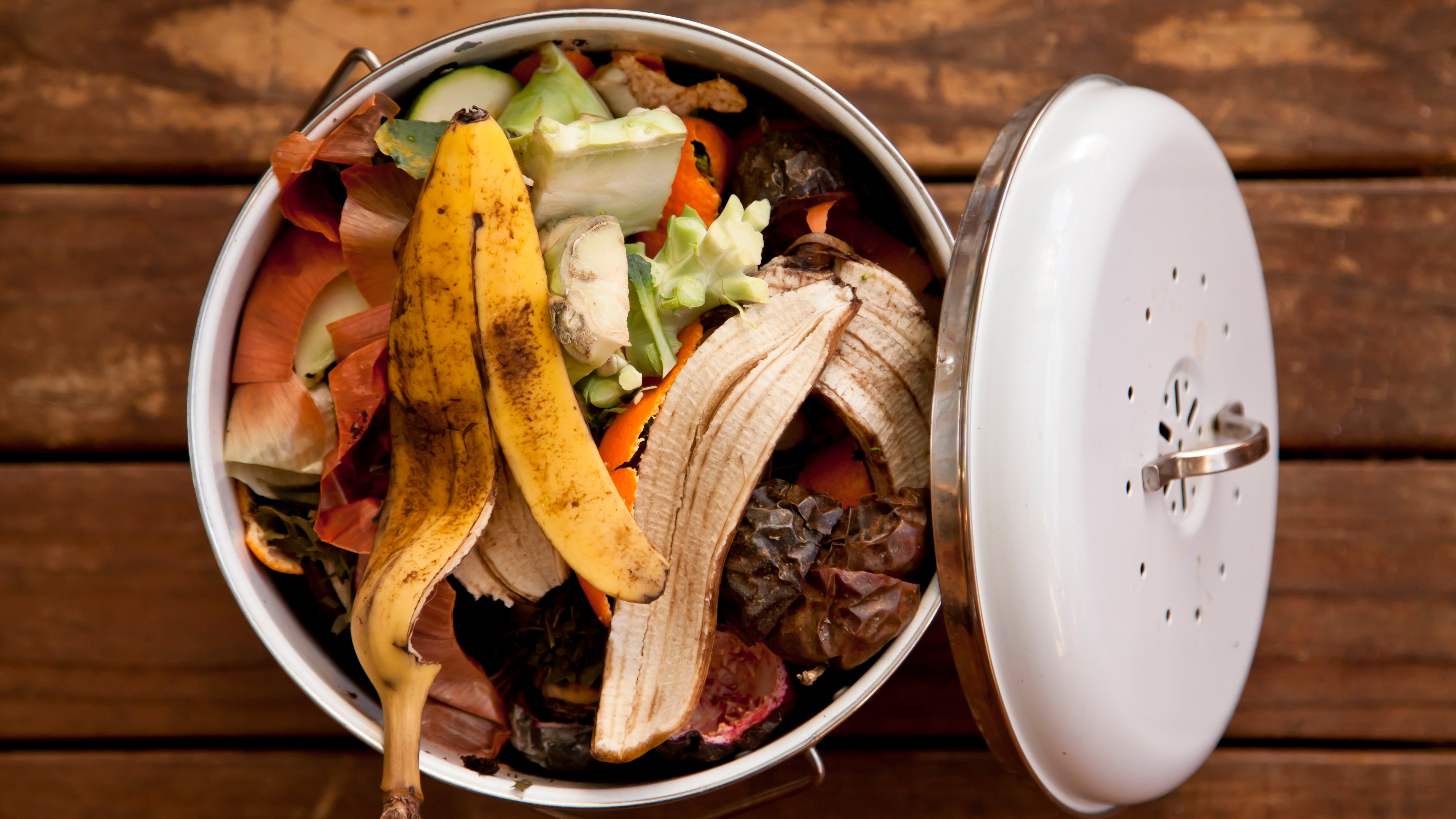Healthy Eaters Generate The Most Food Waste
As our planet collapses around us, many are trying hard to do what they can to minimize their carbon footprints like the fascinating lady in this Time video who produces "zero waste." Most of us, sadly, are far from that. In fact. CBS News and other outlets report today that a new study finds most of us produce an entire pound of waste a day.
The study, which came out Wednesday in the journal PLOS ONE, found that "Between 2007 and 2014, U.S. consumers wasted nearly 150,000 tons of food per day. That's nearly a pound per person and equates to about 30 percent of the average daily calories consumed for every American."
The most problematic categories break down into fruits and vegetables (39 percent), dairy (17 percent), and meat (14 percent). And you know who's mostly responsible for that first one: That's right, frickin' healthy people. Because the produce they buy goes bad faster than a box of Kraft Macaroni & Cheese, they ending up tossing more food than those who primarily eat things in brightly colored boxes and bags.
Even supermarkets are being put on notice. NPR's The Salt reported earlier this week that "Grocery Stores Get Mostly Mediocre Scores On Their Food Waste Efforts": "The Center for Biological Diversity and The 'Ugly' Fruit and Veg Campaign recently asked the 10 largest U.S. supermarkets how they handle food waste, and gave each store's efforts a letter grade." While we can expect that supermarkets throw away tons of rotted and expired food, we would hope that at least one store would get an A. But no. Walmart got a B, because "Besides donating and composting a lot of discarded food, Walmart has worked to standardize its expiration labels into two categories: 'Best if Used By' for nonperishable products, and 'Use By' for food that can spoil.'" Walmart is also a trendsetter for not throwing away an entire carton of eggs because of one cracked egg, merely rotating an uncracked egg into the carton. (One cracked egg won't spoil the whole bunch, girl, as the song used to go.) Whole Foods, unsurprisingly, was praised for taking produce too unattractive for the shelves and repurposing it into something else. ALDI got an F.
Of course, eating a mostly processed diet isn't as healthy for you as a produce-based one, even if more waste results. As this study suggests, maybe the trick is to just stop eating food altogether.
